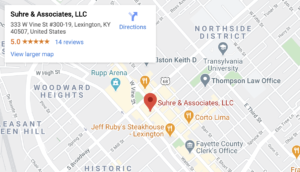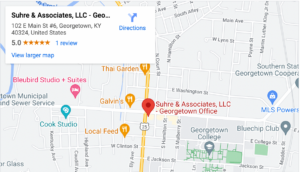
We have specific rights granted to us in the United States Constitution. Understanding our civil rights is essential for protecting our freedom from unlawful acts by law enforcement agencies. Knowing your rights could help you avoid prison, keep your property, and retain other rights afforded to you by law. Due process is one of these rights.
Table of Contents
What Is Due Process and What Makes It Important?

Only one civil right is listed twice in the United States Constitution: the right to due process appears in the Fifth Amendment and the Fourteenth Amendment. Both amendments use the exact words to describe our right to due process:
No person can be deprived “of life, liberty, or property, without due process of law.”
Due process is the obligation of government entities to act within the law and use fair and just procedures when pursuing legal matters, including criminal cases. It protects us against the government seizing our assets or throwing us in jail without taking specific steps that allow us to challenge its actions.
For example, procedural due process requires that the government enact and follow specific steps before depriving someone of their life, property, or freedom. Procedural due process gives us specific rights we can use to challenge the government’s actions, such as:
- The right to have a decision regarding a criminal allegation based solely on the evidence presented in court
- The right to receive exculpatory evidence from the prosecution before our trial that could be used to prove our innocence
- The right to call witnesses and cross-examine witnesses
- The right to present evidence in defense of criminal charges
- The right to a written record of the court proceedings for review on appeal
- The right to appeal a jury or judge’s decision in our criminal case
The above rights are not inclusive of all rights related to due process. The Bill of Rights in the United States Constitution provides additional rights we can use to protect ourselves during criminal court proceedings.
For example, we have the right to a public trial to be decided by an impartial judge or jury of our peers. We have the right to legal counsel and to have an attorney represent us in court. A criminal defendant has the right to have the criminal charges read in court, including a full explanation of the criminal offenses.
We can compel favorable witnesses to testify in court, even if they do not wish to testify in our case. We also have the right to a speedy trial.
Unfortunately, violations of due process are too common in our judicial system. Government entities and law enforcement agencies act as if they do not have to follow the law or respect our civil rights. Violations of due process can result in unlawful incarceration and unjust sentences.
How Can You Protect Your Right to Due Process and Other Civil Rights?
Understanding your rights is the first step in protecting yourself from police misconduct and prosecutorial wrongdoing. Ways that you can protect your civil rights when dealing with law enforcement officers and agencies include:
- Never consent to a search of your person, home, or vehicle without being presented with a valid search warrant.
- Do not provide any information that is not explicitly required by a valid search warrant.
- Except for providing your name and address, exercise your right to remain silent. You are not legally required to answer questions for police officers or prosecutors.
Attempting to stop officers if they act without a warrant could lead to a dangerous situation. Instead, call an attorney immediately to begin preparing a defense and a case for violations of your due process and civil rights.
What Should You Do if Your Civil Rights Are Violated?
Our founding fathers and legislators wrote the Constitution and included due process rights to make the criminal justice system fair for everyone. Without due process, you could be thrown in jail or lose your property without a legally justifiable cause.
If you believe police officers, the court, or a prosecutor violated due process, contact our Lexington criminal defense lawyers immediately.
We can petition the court to ask for relief. If a judge rules that the prosecutor or law enforcement officers violated your civil rights, the judge could dismiss the criminal charges. Alternatively, the judge might rule that evidence is inadmissible in court, which could prevent the state from proving the charges against you.
Even if you believe that the police do not have a right to arrest you or lack probable cause, do not resist arrest. Doing so could escalate the situation into a dangerous altercation with law enforcement. It could also result in additional criminal charges.
Contact Us for a Free Consultation With Our Lexington Criminal Defense Lawyers
Our legal team stands with you to protect your legal rights. We fight against police misconduct and wrongdoing. Contact our law firm Suhre & Associates DUI and Criminal Defense Lawyers at 859-569-4014 to schedule a free consultation to discuss your case with an experienced Lexington criminal defense attorney.


